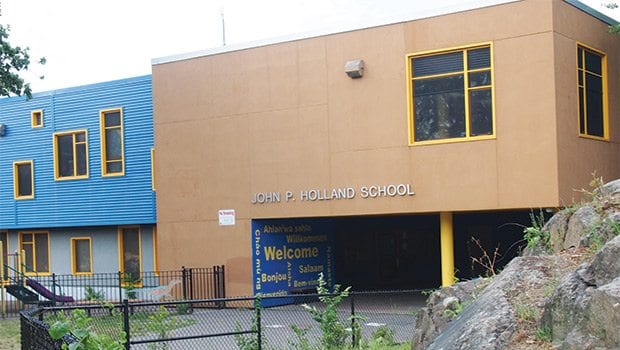State has checkered history of school district interventions
A brief history of DESE takeovers and interventions

Education Secretary Jeff Riley has been widely lauded for his work turning around the Lawrence Public Schools, a long-troubled district he took over as state receiver/superintendent in 2012.
By many accounts, the school system there had bottomed out, with 37% of students earning a warning/failing score in mathematics. In 2019, one year after Riley left, the metrics were different, with a revised MCAS test, but the results showed progress, with students listed as “not meeting expectations” at 29%.
Riley earned the respect of state education officials. While he fired most of the district’s headmasters, he retained most of the teachers. Under Riley’s leadership, graduation rates improved, as did test scores.
Yet nine years after the state Department of Elementary and Secondary Education (DESE) stepped in, the Lawrence school district remains in receivership and is listed on the DESE website as “requiring assistance or intervention.” DESE sets targets for school districts as a way of measuring their progress toward targets. In 2019, the Lawrence schools received a rating of 42%, which the department lists as “moderate progress toward targets.”
By way of comparison, Boston received a rating of 56% in 2019, which DESE listed as a “substantial progress toward targets.”
Boston has its share of challenges, with 34 schools throughout the city listed among the lowest 10% of schools in the state. (DESE relies on two consecutive years of MCAS scores in making that assessment.)
If the city’s recent experience with state intervention is any indication, DESE oversight of those 34 schools could provide even greater challenges.
The Holland School in Dorchester, which the state declared “failing” in 2013, was put into receivership and has been run by the UP Academy charter management company. In 2019, DESE still categorized UP Academy Holland, as the school is now called, as a “chronically underperforming school.” The school gained national attention in 2016 for its “no excuses”-style disciplinary model. In the 2014-2015 school year, the pre-K through 5 school suspended more kindergarteners than any other school in Massachusetts and had a total of 325 suspensions, with a student body of 750.
The UP Academy disciplinary regime highlighted another challenge of state takeovers: The charter management company running the school reports directly to the DESE board, and not to the Boston School Committee, the BPS superintendent or any local officials. Therefore, parent complaints go to the UP Academy CEO, who doesn’t answer to local officials, an arrangement critics say limits local accountability. The school remains under receivership.
At the Paul A. Dever School, placed under receivership in 2014, the state selected a Newton-based start-up management company called Blueprint, whose contract was ultimately canceled. In the first two years, Blueprint cycled through five principals, calling into question the state’s ability to administer turnaround schools. During the first two years, Blueprint reportedly received $1.3 million from the state, in addition to $4.6 million a year from BPS for the school’s operating budget and $585,000 in state and federal grants.
Former Boston Latin School head Michael Contompasis is the current receiver for the Dever. The school remains at Level 5, the lowest ranking in the state’s rating system.
Results have been similarly disappointing outside of Boston, in Springfield, Holyoke and Southbridge. Holyoke and Southbridge are listed as Level 5 chronically underperforming school districts. In Springfield, the state designated 10 struggling schools as an “empowerment zone.” Those schools are given greater autonomy than others in the Springfield District and are not subject to union contracts.
While one of the Springfield schools was converted to a talented and gifted program, the other nine have shown some progress but remain ranked in the lowest 10% of schools in the state. DESE lists the Springfield district as the third-lowest-ranked district in the state.
In Southbridge, which the state put into receivership in 2016, the district has had four receivers and remains at Level 5 status. It is the second-lowest-ranked school system in the state. Holyoke has had more stability, with just one receiver in the last five years, yet remains the lowest-ranked district in the state.







